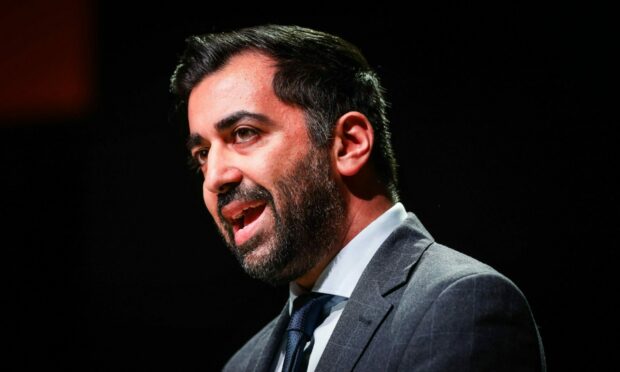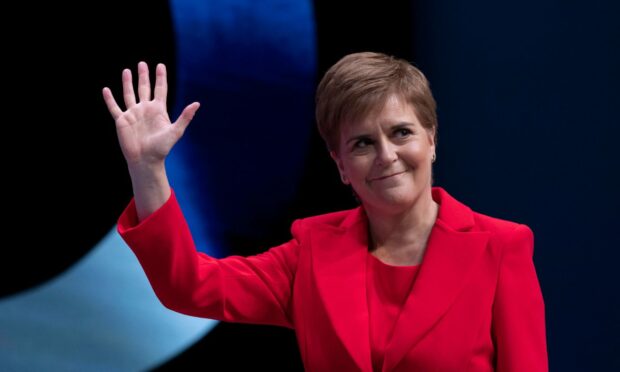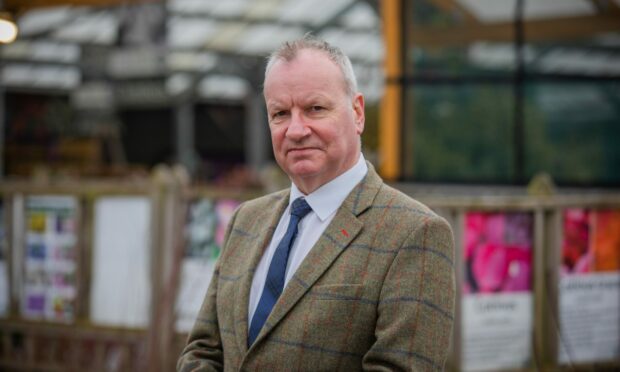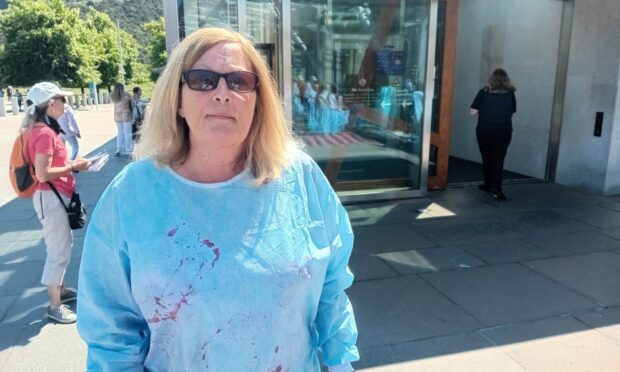Humza Yousaf unveiled his blueprint to fight the next Westminster election solely on independence – but it immediately became shrouded in confusion.
The first minister told activists in Dundee his party will put a one-line manifesto to voters stating that support for the SNP is support for independence.
But he soon admitted his party would accept a referendum if successful at the ballot box, despite that appearing to undermine his initial message.
The SNP leader said he would seek negotiations with Westminster after an electoral contest, but admitted what comes after was not guaranteed.
While he would be content to open discussions for Scotland to become independent, he would still be happy to hold a referendum at a later date as an alternative to this.
The first minister told SNP members winning the majority of Scottish seats at the general election was the key mark of success to forge ahead with their plan.
That means he would still put his strategy into action even if the SNP lost more than a dozen seats currently held by the party.
Speaking to the audience in Caird Hall, the first minister said: “I believe that in this election, the SNP should offer the people of Scotland a manifesto for an independent Scotland.
“And I am proposing in that manifesto – page one, line one – a simple powerful statement to the people. It should say ‘vote SNP for an independent Scotland’.”
The first minister claimed Scotland would no longer be in a “voluntary union” if SNP demands for a referendum are ignored after a successful election result.
Some politicians and activists within the party took his speech to mean a return to Nicola Sturgeon’s “de facto” referendum strategy.
Last year the former SNP chief said a majority of votes in favour of her party at the next election would be taken as an immediate mandate for independence.
This would be achieved by her party fighting an election on the cause of independence alone, which sounds similar to Mr Yousaf’s stance at first glance.
But Mr Yousaf said to journalists his “preference” was still for a rerun of the referendum despite his new offering to supporters.
He said: “It always has been our plan A. That’s been denied to us.”
Veteran Perthshire MP Pete Wishart believed Mr Yousaf’s plan indicated the first minister was in favour of a “de facto” vote.
He said: “It’s everything I wanted him to say. I couldn’t be happier. We will treat the next general election as a de facto referendum.
“From what I was hearing, he was setting up very clearly that a vote for the SNP is a vote for independence.”
Party activists agreed with Mr Wishart’s view of the first minister’s speech.
One SNP member, from Rutherglen, told us: “I took it as a de facto vote. You don’t say that if you’re still looking for a referendum.”
Asked the same question, another nationalist from the South Lanarkshire town said: “I did. I think it’s the only approach at the moment.”
The SNP’s Dundee convention came just under two weeks after Nicola Sturgeon’s arrest as the police probe into the party’s finances rumbles on.
In the lead-up, party insiders warned the event risked being a “talking shop” since no final decision was being taken on the party’s approach to gaining independence.
Mr Yousaf’s speech to the crowd was initially delayed as crowds were forced to wait outside for entry while standing right next to furious pro-union demonstrators.
And the first minister wasn’t even able to fully unveil his independence strategy before he was heckled by an angry SNP member who plans to quit the party.
Theresa Mallett, 61, from Glenrothes in Fife, interrupted Mr Yousaf’s speech over his failure to grant a public inquiry into disgraced Dundee doctor Sam Eljamel, who repeatedly harmed patients.
Mr Yousaf briefly spoke to Ms Mallett after urging the crowd not to jeer her, and agreed to meet with her in future to discuss her case.
He was met with a warm reception from the crowd in what was his biggest address to the SNP membership so far as party leader.
But both the Tories and Labour have repeatedly insisted they will refuse to grant a referendum no matter what happens after the next election.
‘More extreme’
Highlands and Islands Tory MSP Donald Cameron claimed Mr Yousaf’s new approach was an “even more extreme version” of Ms Sturgeon’s previous plan.
He said: “He knows that Scots will be voting on a number of issues, but Humza Yousaf has thrown another slab of red meat to nationalists to deflect from the chaos engulfing his party.”
Scottish Labour MP Ian Murray said: “Humza Yousaf is preparing for failure with these plans, which seem to suggest that even if his party haemorrhage seats at the next election they will take it as a mandate to continue focusing on separation.”



